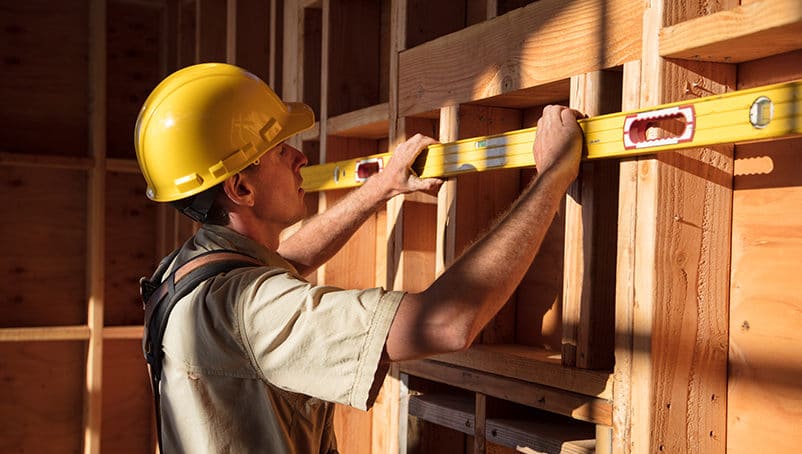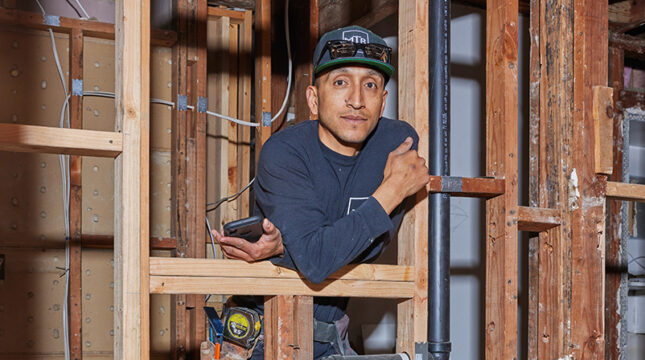General contractor license renewal requirements
Active general contractor licenses in California expire every two years. You’ll get a renewal application about two months before your license expires. After submitting the form and paying the $450 renewal fee, you can check your license status online to track its progress.
Keep in mind that the business name on your license renewal must match the CSLB’s records and the name on file with the Secretary of State.
General contractor license reciprocity in CA
California has reciprocity requirements if you have a general contractor license from Arizona, Louisiana or Nevada. First, your license must match the state’s Reciprocal Classification List. You must also have held an active license in good standing for at least five years.
You can submit a verification request to validate your license and complete the application if you meet the criteria. The process is typically faster than applying for an initial general contractor license because the CSLB offers a trade exam waiver as part of its reciprocity guidelines.
Local California general contractor business license requirements
In addition to state requirements for general contractor businesses, make sure to check local requirements in California, too.
Los Angeles
Before launching your general contractor business in Los Angeles, you’ve got to have a Business Tax Registration Certificate. It’s a rule under Section 21.188, and the Los Angeles Office of Finance ensures everyone’s playing by the book by checking construction sites.
Part of the process involves filling out and submitting a list of your subcontractors, which helps speed up the review.
In Los Angeles, contractors are subject to specific insurance mandates. For commercial projects, you need to have a minimum general liability limit of $1 million per occurrence and $2 million in total. And the City of Los Angeles should be listed as the Certificate holder and Additional Insured.
For residential projects, the minimum personal liability limit is $300,000. You’ll need to show proof of this insurance by uploading it to KwikComply, the city’s insurance risk management system.
Lastly, LA is a mixed bag. It’s got high-rise buildings, complex infrastructure projects, and a variety of commercial and residential work. But it’s also got its share of high crime rates, earthquakes, wildfires and mudslides. So, when researching general contractor insurance coverage in LA, consider these important factors.
San Diego
Thinking of opening up shop in San Diego? You’ll need a Business Tax Certificate, which functions as a business license and shows you’ve paid your business taxes. But remember, this certificate doesn’t replace any other permits or licenses you might need under state or local law.
If you’re a residential contractor working with the Housing Commission in San Diego, you need to maintain insurance coverage. This includes:
Contractors must also provide various written endorsements, such as a waiver of subrogation for workers’ compensation and additional insured endorsements for general liability.
San Jose
If San Jose is where you’ll be based, you’ve got to get a Business Tax Certificate within 90 days of starting your operations. But keep in mind, this certificate doesn’t mean you’ve met all the other permits or licenses you might need from the city, county, state or federal government.
San Francisco
General contractors operating in San Francisco are required to have a valid San Francisco Business License. Alternatively, contractors can present a temporary Business Tax Certificate in place of the business license.
In San Francisco, contractors must adhere to specific city mandates beyond state requirements in 2023. The Minimum Compensation Ordinance sets rates at $20.22/hour for for-profit, $18.93/hour for non-profit, and $19.25/hour for public entities, with scheduled increases.
The Health Care Accountability Ordinance requires payments of $6.35/hour to San Francisco General Hospital, capped at $254/week.
When it comes to insurance, it’s important to keep in mind that the city is located near two major earthquake faults (San Andreas and Hayward), making commercial earthquake insurance a wise precaution.








